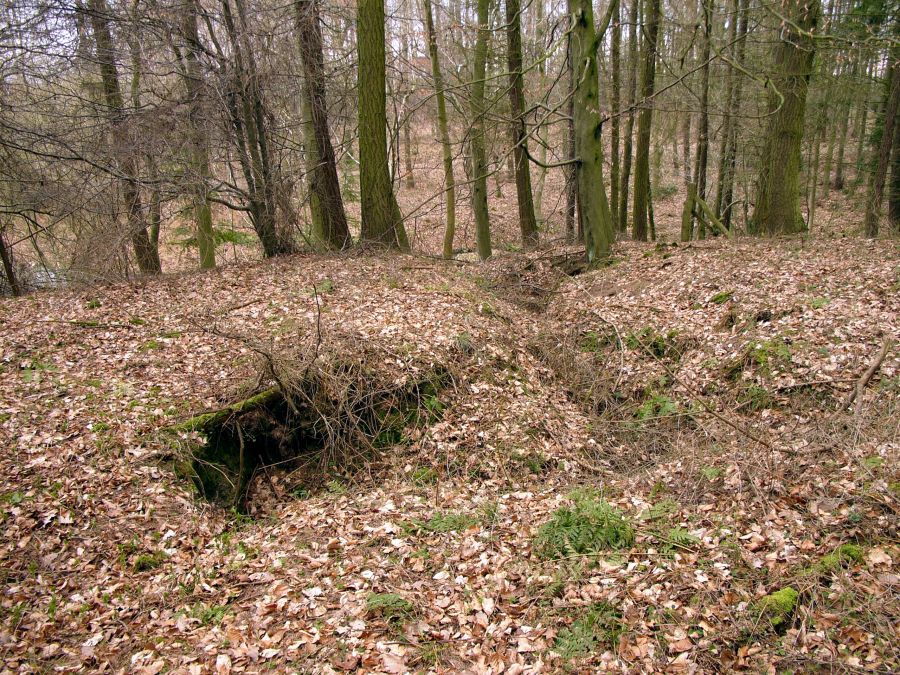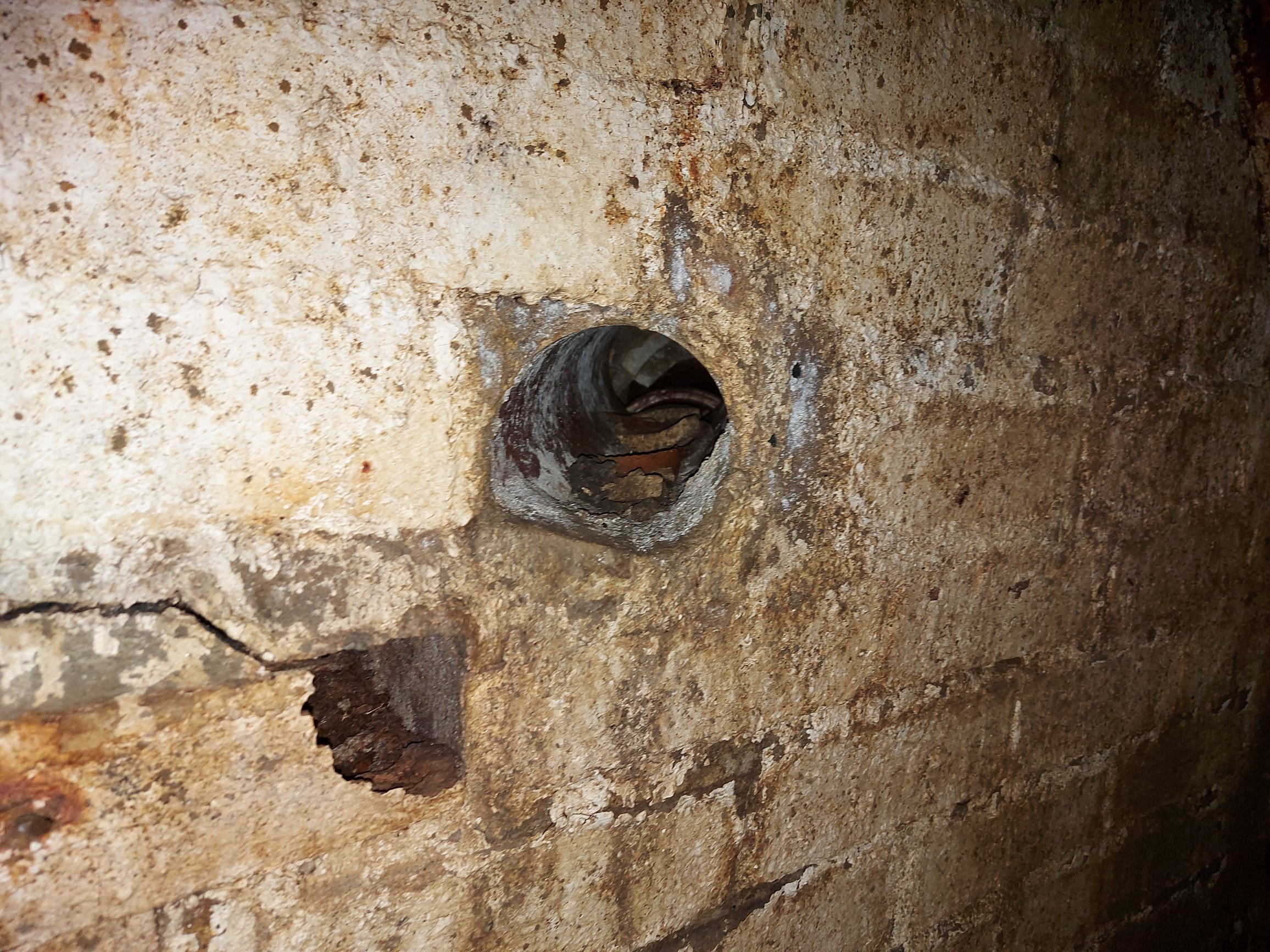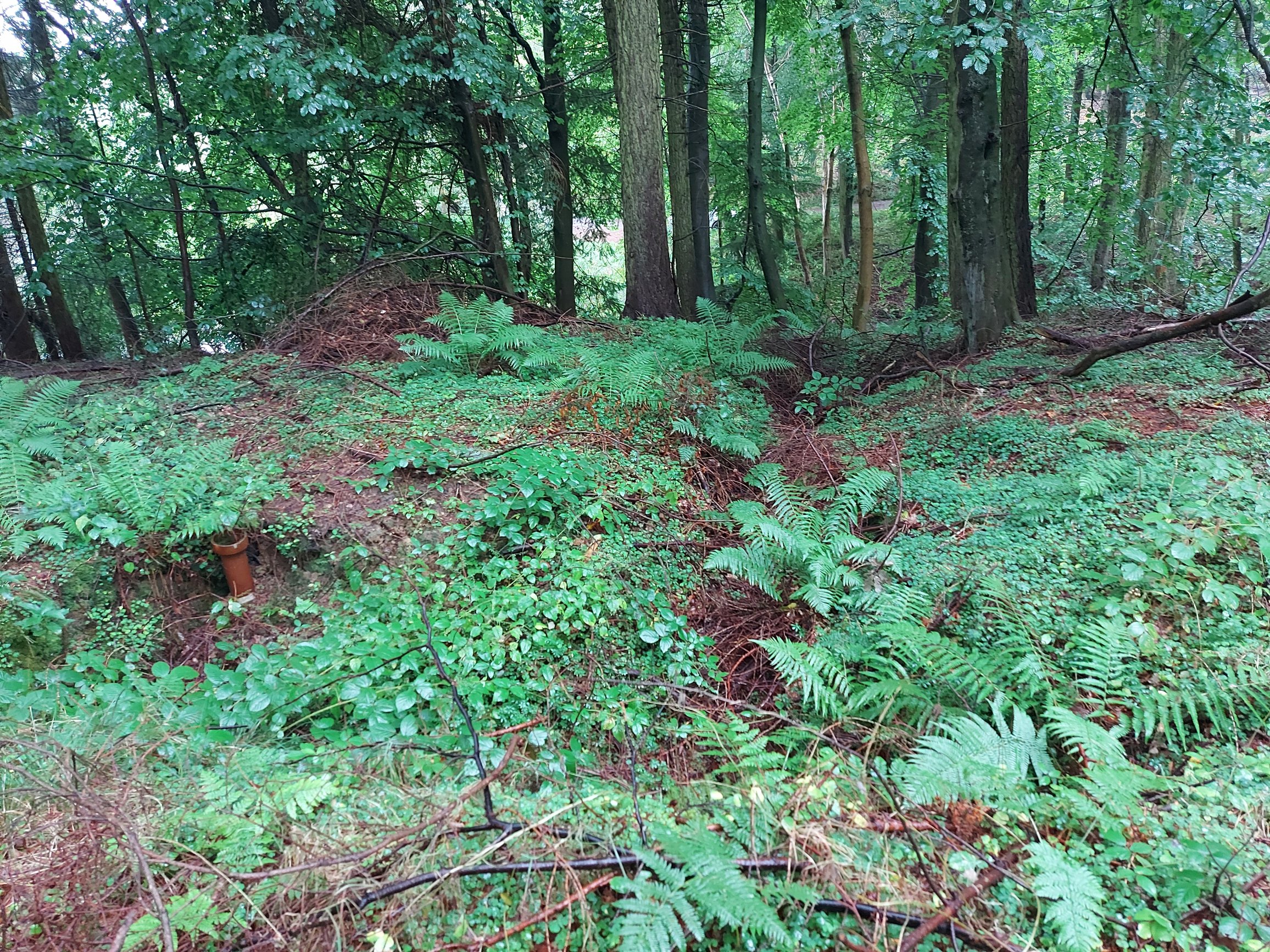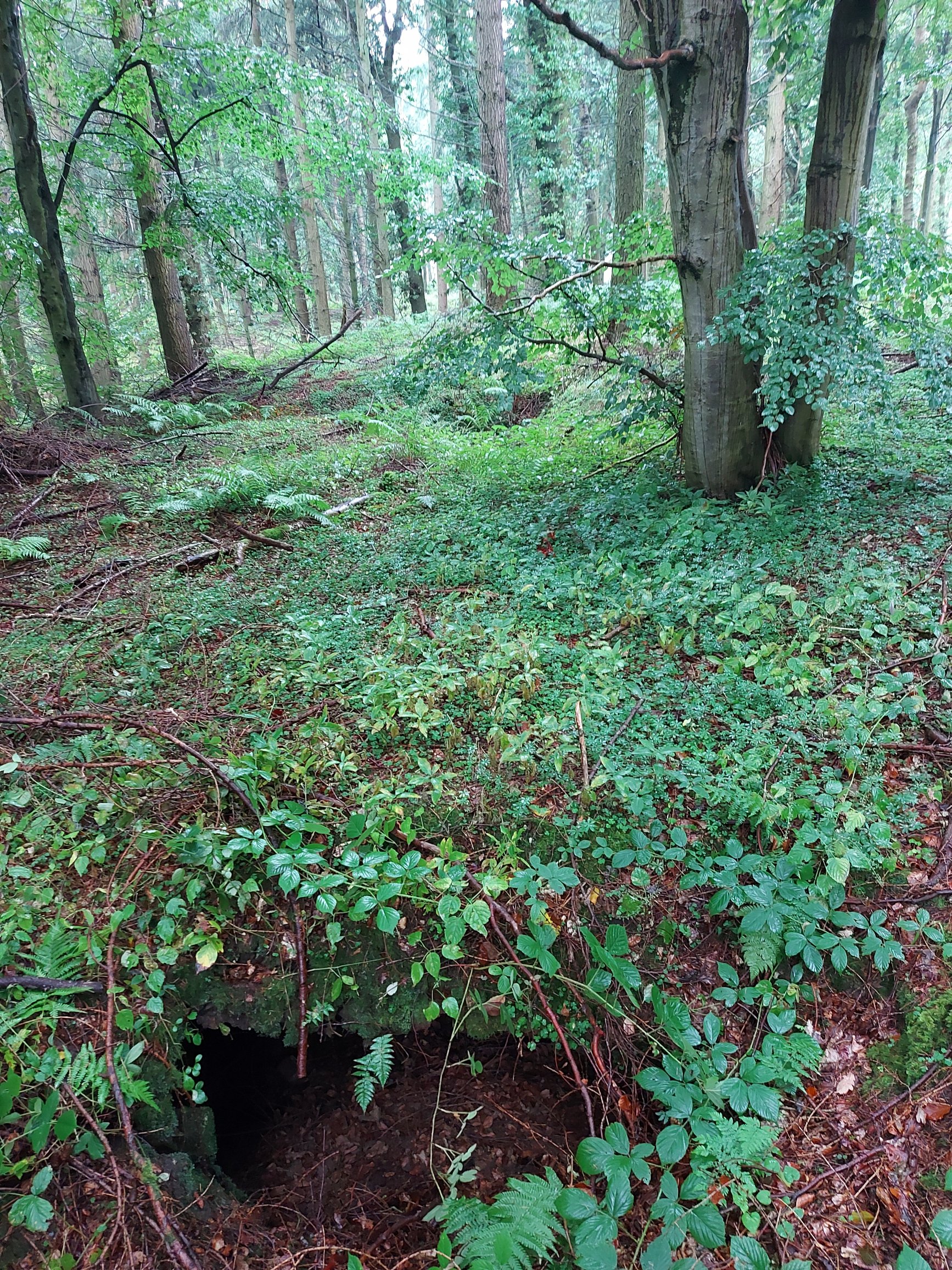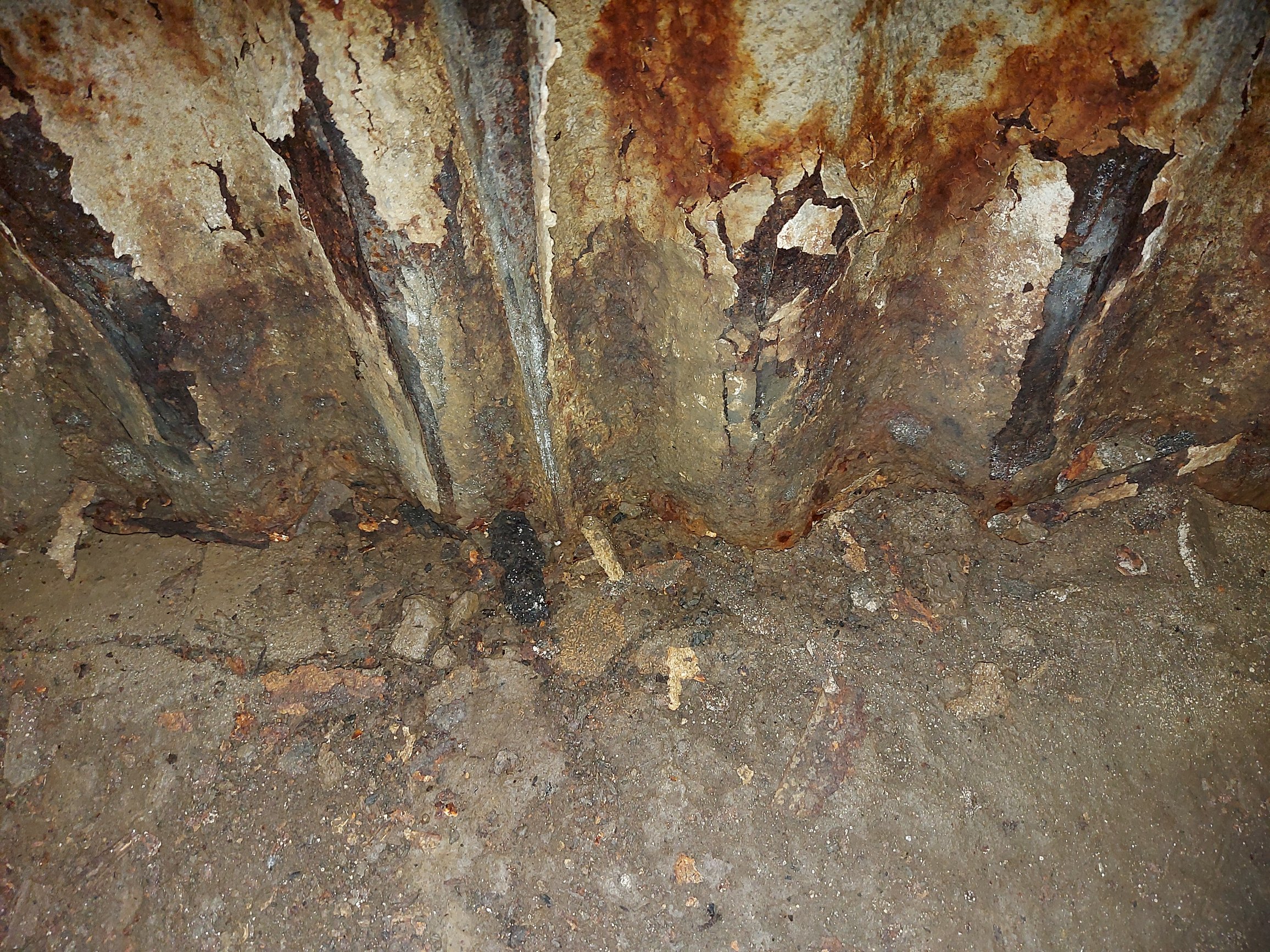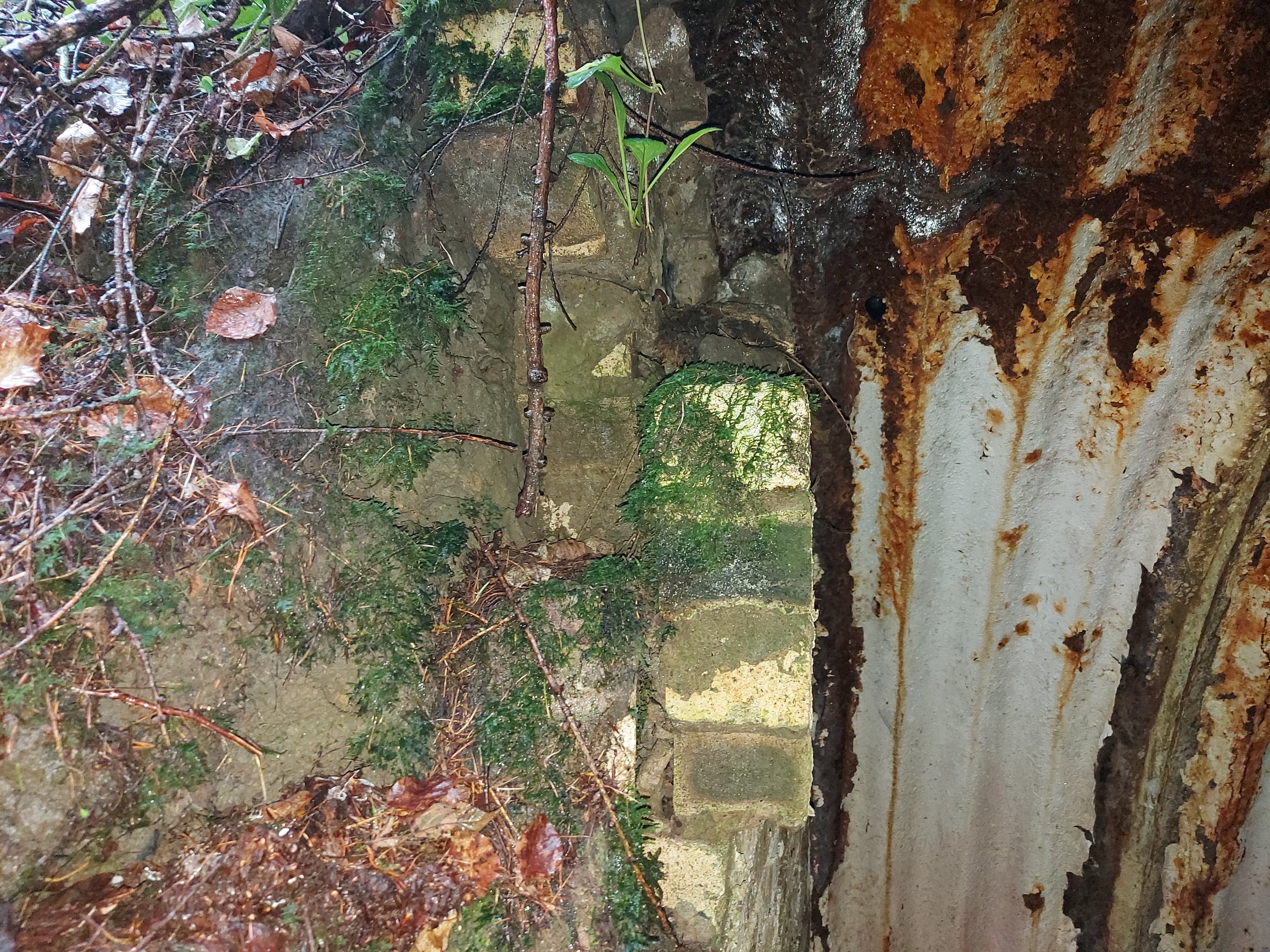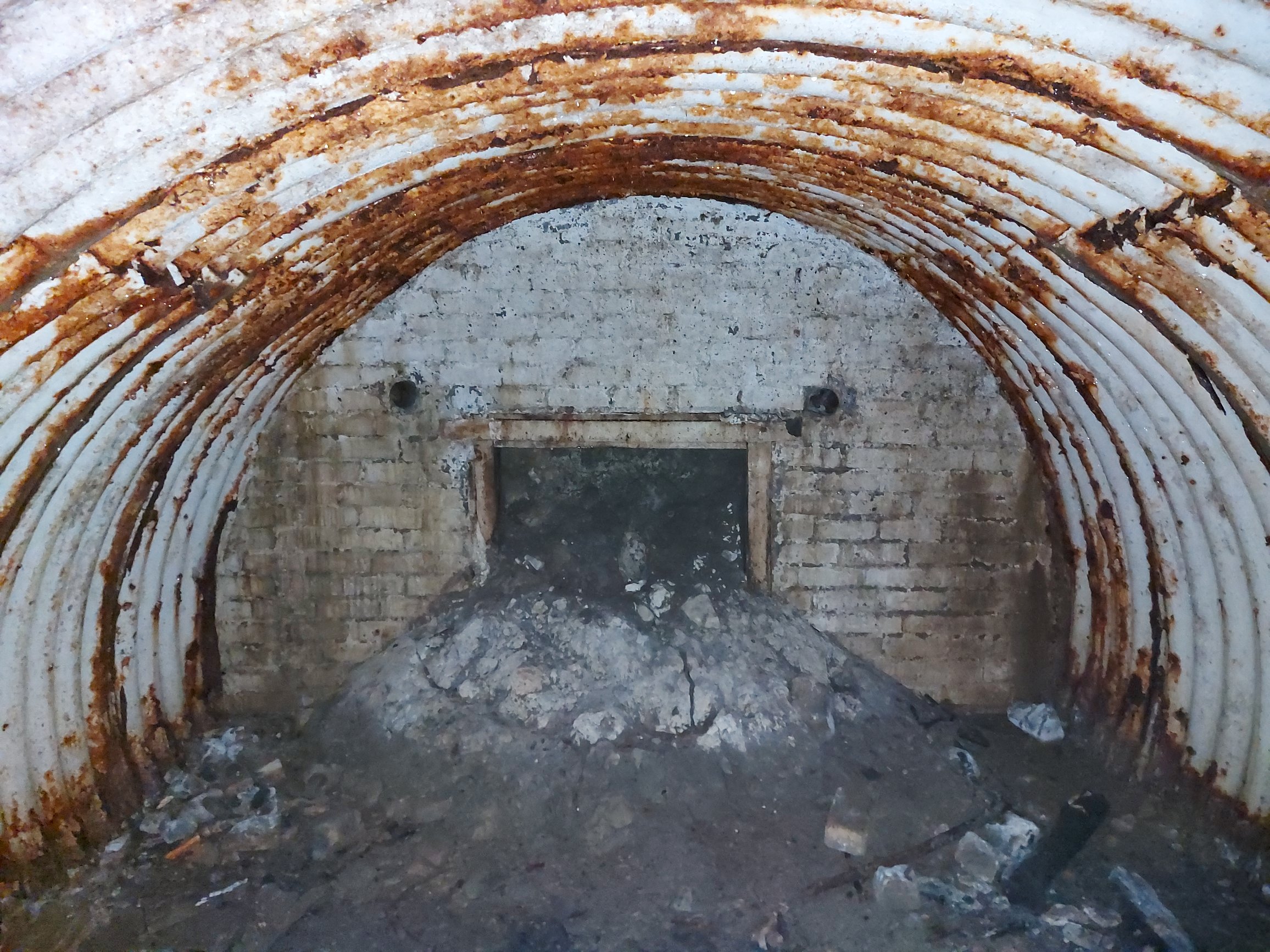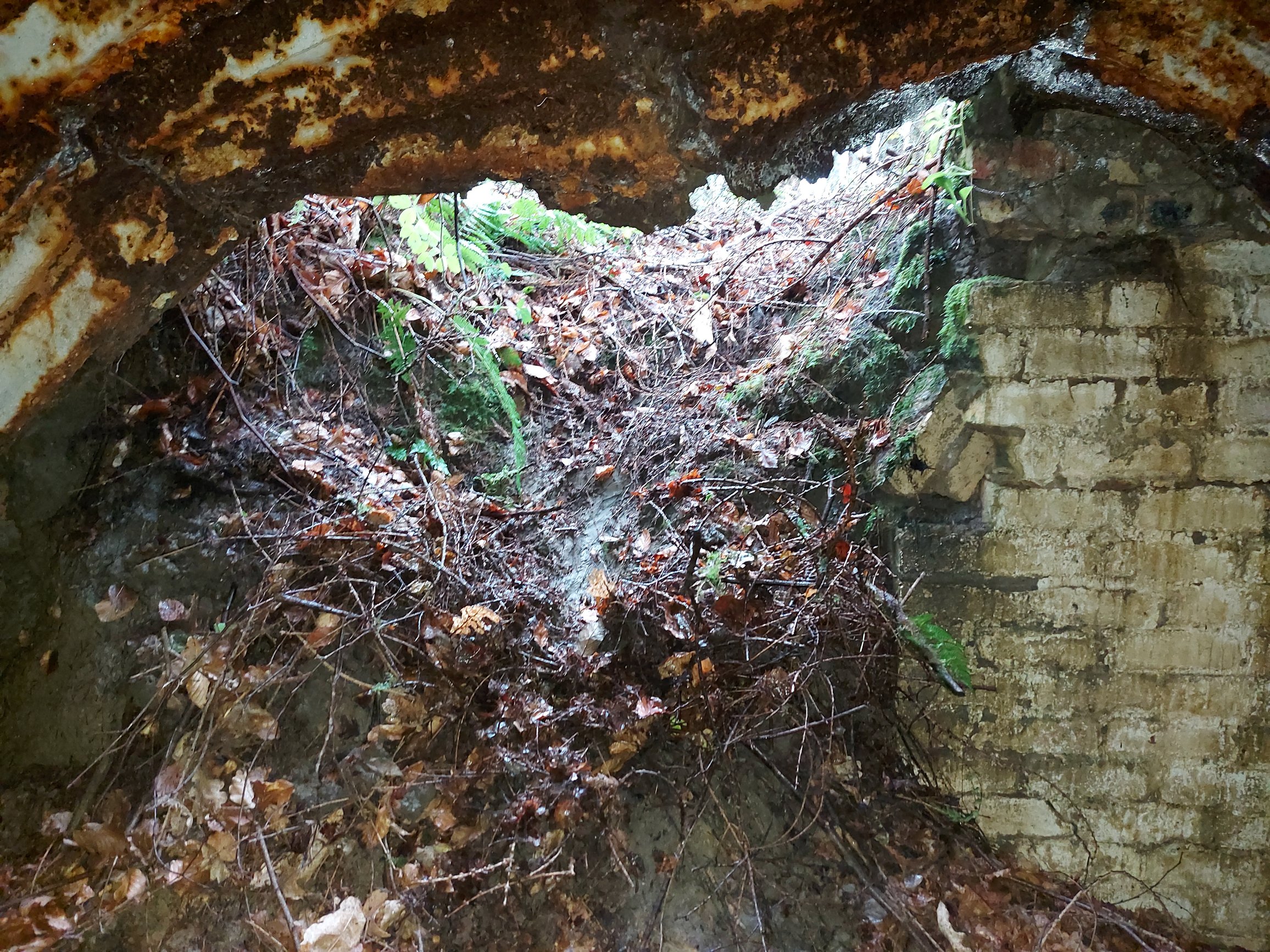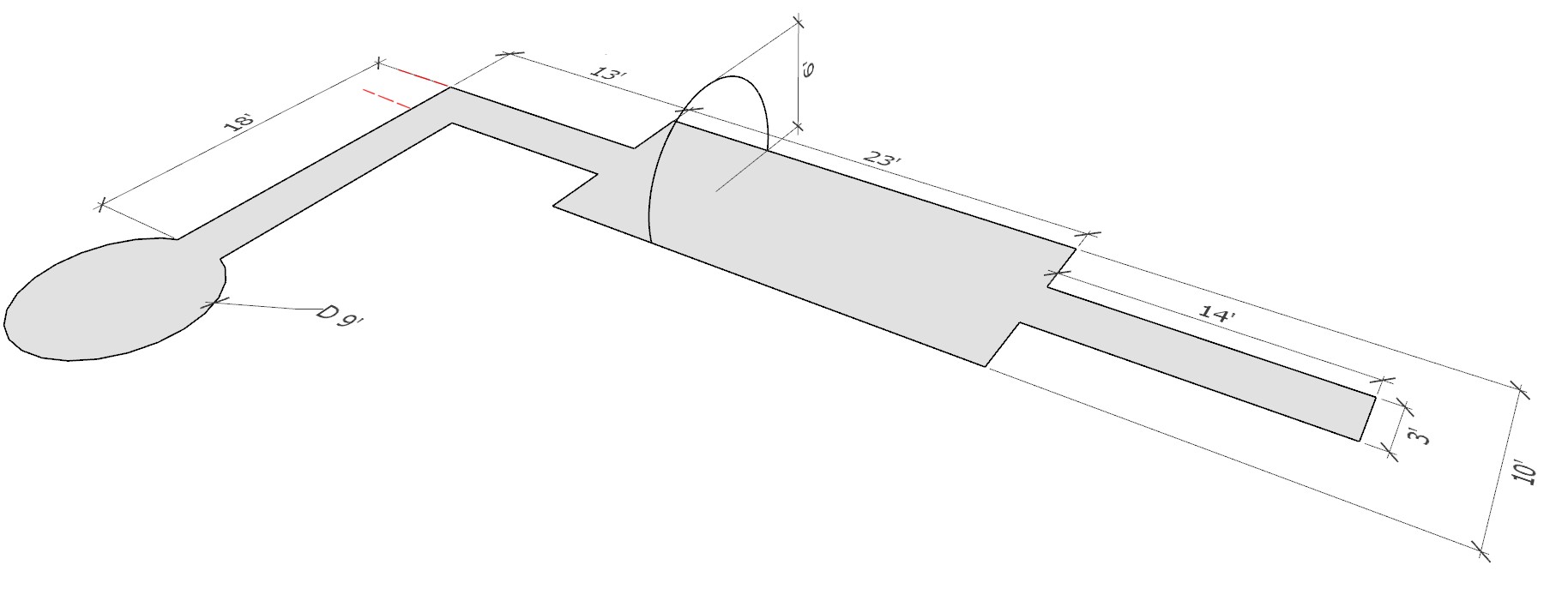The Patrol was based just north of the small village of Hebron in Northumberland.
| Name | Occupation | Posted from | Until |
|---|---|---|---|
| Sergeant Jimmy N. Hine | Farming |
Unknown | 03 Dec 1944 |
| Second Lieutenant William Arthur Mitchell | Motor company insurance inspector |
Unknown | 1943 |
| Private John Robert Davison | Farmer |
Unknown | 03 Dec 1944 |
| Private George Johnson | Motor mechanic |
Unknown | 03 Dec 1944 |
| Private Alexander Hunter McBryde | Farmer |
Unknown | 03 Dec 1944 |
| Private Charles Marshall McBryde | Farmer & war agricultural sub committee member |
Unknown | 03 Dec 1944 |
| Private James Shell Moore | Farming |
Unknown | 03 Dec 1944 |
The OB is still partially intact. The main body of the shelter is still in place and holding up the earth above it.
The entrance hole and the escape tunnel have collapsed. The escape tunnel leading from the OB towards a stream looks to have been built from cut wooden railway sleepers, now rotted away.
The escape tunnel heads in a downward direction from the steep bank that the OB is built upon. It is possible to enter the OB with caution, via the opposite end to the entrance. Here the corrugated iron sheeting has come apart allowing access.
It is hard to tell, but the way the escape tunnel has collapsed makes it look like there was an alcove or possibly even a second tunnel leading away from the corner (red dotted lines on the plan). The depression is only a couple of feet long at most, so without a little excavation, it's impossible to determine if it is an additional feature or just the way the earth has moved.
The inside is in surprisingly good condition - with the exception of the mostly collapsed entrance wall and the earth piles at either end, the visible floor is almost entirely the original concrete and while the paint is flaking, the structure still appears sound. What is interesting is the height - at only 6 feet from the floor to the ceiling, any additional floor covering such as timber would have made it cramped and awkward for moving.
The site is in woods near the village of Hebron, Northumberland. It is located near a track through the woods on high ground overlooking a stream. Again this would be useful for prolonged stays in the OB and follows a standard pattern adopted in the Northumberland area.
This OB was built by 184(s) Tunnelling Company Royal Engineers.
Hebron Patrol
Targets will have included the East Coast main railway line, the Bothal Viaduct and road bridges over the Wansbeck River.
Longhirst Hall was used by the army during WW2 and was a likely German HQ if invaded.
Training would have taken place locally on the McBryde's farms. Some of the Patrol went to Coleshill House and the Patrol went to the Otterburn Ranges with the regular Army. Most of the Patrol went to Cupar in Fife to take part in the Commando training course.
The Patrol was equipped with a Sten gun, .22 sniper rifle, Fairbairn Sykes fighting knives, garrottes, lead filled clubs. Smith and Wesson pistols plus high explosives, detonators and time pencils. Basic Mark 2 Auxiliary Unit kit.
A letter was sent to Jimmy Moore of the Hebron Patrol after his duties at Balmoral. Jimmy was a farmer at Longhirst north of Morpeth.
The majority of the members of these Patrols were from the farming community and many were personally known to Mr. Carmichael before the war.
The National Archives in Kew ref WO199/3388
Hancock data held at B.R.A
1939 Register
Bill Ricalton
David Constantine
Damian "Fell Wanderer"



